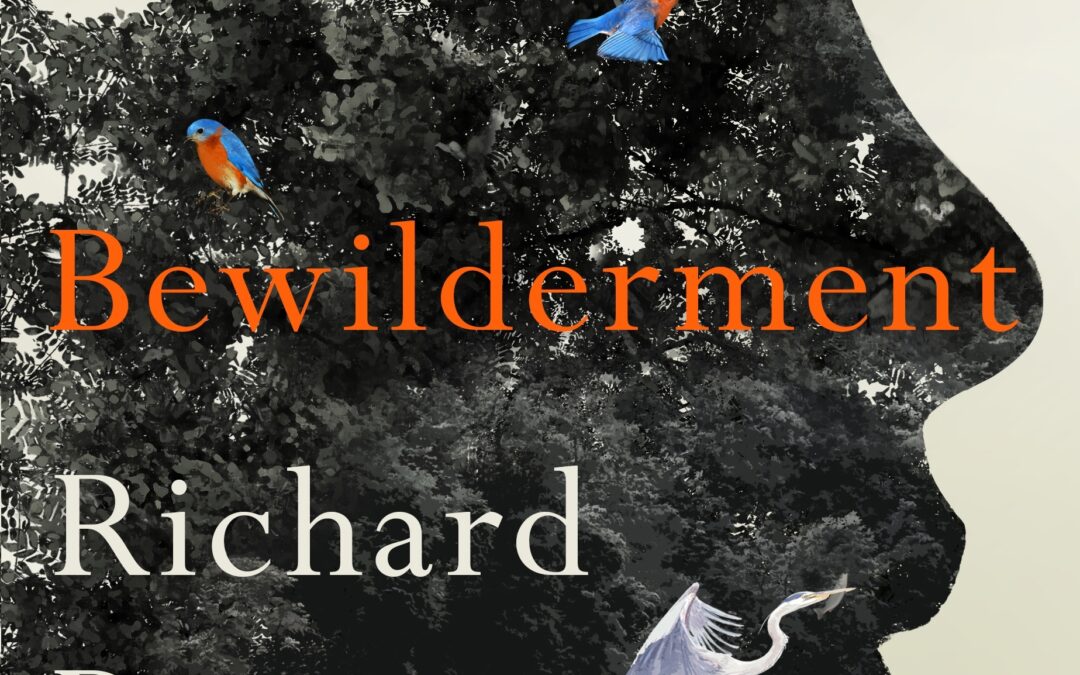‘At the heart of Bewilderment lies the question: How can we tell our children the truth about this beautiful, imperilled planet?’
I was completely captivated by Richard Powers’ awe-inspiring novel The Overstory, and while this next book Bewilderment (Penguin Random House 2021) lacks some of The Overstory’s power, it is still a masterful interpretation of climate change, the synergy between species, and the questions about what other planets and life-forms lie beyond our understanding. There is a deep sadness in this story, cultivated by how humans knowingly and willingly continue to destroy the earth, its natural features and its species of insects, fish, birds and animals. And yet there is hope; hope that technology may yet find a way for us to save ourselves, and the hope of one small child to bring attention to crucial issues.
That child is nine-year-old Robin – curious, inventive, artistic, searching, funny, loving and filled with ideas. Robin intensely intuits the feelings of others. He is acutely worried about the future of the world. He also has wild rages and meltdowns – the latest episode, when he hit a friend in the face with a thermos – could see him expelled. Teachers and doctors are calling for him to be medicated.
Robin’s father Theo Byrne is a scientist fascinated by the possibility – or the certainty – of life on other planets and is working on a high-tech system to search for life on planets dozens of light years away. Robin’s mother died in a tragic accident and Theo works hard to keep his son on an even keel. He feels psychoactive drugs should be the last resort. But he also can’t bear to see his son suffer so keenly in reaction to the suffering and degradation of the world around him.
When a scientist offers to include Robin in an experiment studying the patterns of emotions, and whether emotional stability can be replicated from one person’s brain to another, the opportunity seems on the one hand to have the potential to be awesome and life-changing, and on the other to be dangerously invasive. And when Robin begins to tap into his dead mother’s sensitivities and capacity for happiness, a whole host of questions arise about the scientific process and the parameters of the study.
Powers tackles the urgent and tragic problems faced by our planet with language that is poetic and imaginative. The voice of young Robin seems at times to be shouting into the void, and at other times, it captures the attention of those who have the power to make significant change. Robin is an unforgettable and endearing character, clearly inspired by young people such as Greta Thunberg.
Part of this story is contemporary, compelling and completely plausible. Part is speculative fiction but not out of the realm of near-future technology. But no matter how much of this story is imaginative fiction, its emotional heart is the fragility, perseverance, torment, anxiety and optimism of one small boy, and his determination to raise his voice on behalf of the elements of our natural world that are unable to do so. Thought-provoking and beautifully written.

